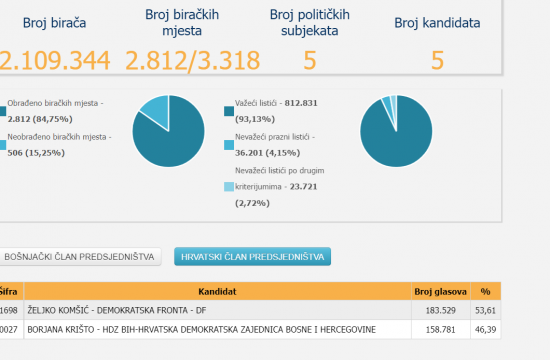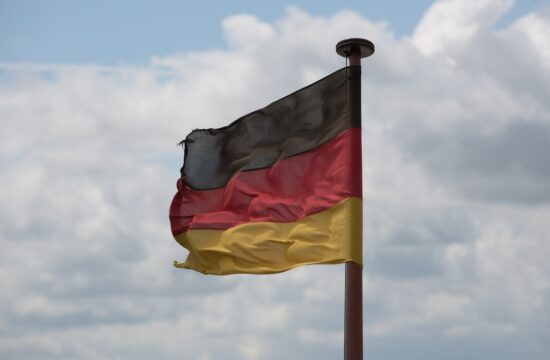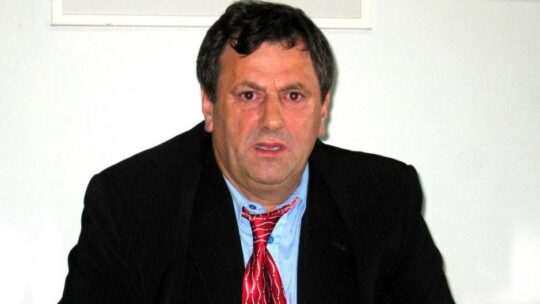The Croat Democratic Union (HDZ BiH) is grounding its election campaign on the Election Law issue and is only declaratively advocating the rights of Croats in Bosnia, said Milan Dunovic, Vice President of the Federation of Bosnia and Herzegovina, Bosnia's semi-autonomous entity dominated by Bosniaks and Croats.
Speaking for N1, Dunovic said the ruling HDZ BiH was not interested in the issue of Croats moving out from Bosnia and was violating “all principles of the civil rights that are valid in the European Union.”
HDZ's principles mean “a complete discrimination” on grounds of ethnic and territorial affiliation, he said, and they disable ethnic Croats from all parts of Bosnia to be equal i.e. to be delegated in the House of Peoples. “Those are not European Values and Europe will never accept that,” added Dunovic.
The Venice Commission's experts arrived this week to assist Bosnia's politicians and authorities in finding an agreement on the burning issue of the changes that Bosnia has to make to the Election Law, in order to align it with the country's Constitution.
Two years ago the Constitutional Court of Bosnia and Herzegovina ruled that some provisions of the Election Law were inconsistent with the state Constitution and subsequently deleted two sections of the Law which treat the matter of representation in the FBiH House of Peoples.
Since then, Bosnia's political leaders have failed to act in the legally allowed time frame to change the Law. Talks on the issue have been in deadlock for some time, despite mediation by international representatives present in the country.
According to Dunovic, whose Democratic Front (DF) took part in consultative talks with the foreign experts, the Venice Commission stated its opinion and it was opposite to HDZ BiH's proposal.
“It was so obvious we knew what would the Venice Commission say. What was happening in Bosnia was HDZ BiH's demonstration of non-democracy,” he added.
The Venice Commission's experts engaged in the three-day talks with Bosnia's political representatives and authorities but without, officially, presenting their opinion on the matter of electoral reform in Bosnia. They announced final talk with Bosnia's political leaders at the beginning of June.
Assessing the work of the FBiH's legislative authorities, the FBiH Vice President said the situation was never worse and that results of the FBiH Government's work was the best indicator.
“Reforms do matter but they cannot be done in an unconstitutional way,” said Dunovic, adding that a number of laws was anti-constitutional and was not of a reform kind.




